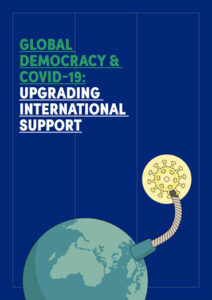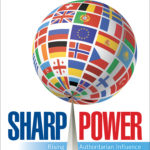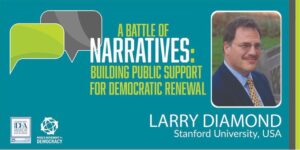The US election is the most important since 1932, when Franklin Delano Roosevelt became president in the depths of the Depression. With much trial and error, FDR saved democracy, at home and abroad, says FT columnist Martin Wolf:
Just a few days after his commitment to make the US democracy’s “arsenal”, FDR made a still more remarkable promise to posterity. In his State of the Union address of 6 January 1941, he committed the US to promoting four freedoms: freedom of speech; freedom of worship; freedom from want; and freedom from fear. These were not idle vows. Over the ensuing half century, the world experienced a great spread of democracy and reduction in poverty. Neither would have happened without the institutions the US created, the habit of co-operation it promoted and the prosperity it spread.
 Democracies must show that they can muster the collective discipline, organization, and resourcefulness to control the pandemic. This does not require surrender to authoritarianism, much less to the virus itself. But it does necessitate a transcendent effort that puts science in the forefront, compels the wearing of masks in public, invests heavily in widespread testing and contact tracing, and widely distributes adequate protective equipment, and then a safe vaccine when it is available. If the world’s democracies cannot do a better job of controlling the COVID-19 pandemic, they are unlikely to control the gathering pandemic of authoritarianism either.
Democracies must show that they can muster the collective discipline, organization, and resourcefulness to control the pandemic. This does not require surrender to authoritarianism, much less to the virus itself. But it does necessitate a transcendent effort that puts science in the forefront, compels the wearing of masks in public, invests heavily in widespread testing and contact tracing, and widely distributes adequate protective equipment, and then a safe vaccine when it is available. If the world’s democracies cannot do a better job of controlling the COVID-19 pandemic, they are unlikely to control the gathering pandemic of authoritarianism either.- The second imperative is democracy support. We must remind ourselves that democracy is not won not by abstract historical forces, but by democrats—people and organizations mobilizing, strategizing, advocating, and taking risks. Last year, Congress took an important step by substantially increasing the budget of the National Endowment for Democracy (NED)……. But the problem is a broader one. …. One of the central challenges for democracy in the next administration will be figuring out, country by country, the leverage we can bring to bear in balancing geostrategic interests against human rights imperatives in our various bilateral relationships.
- This raises the third priority. To wage a renewed campaign for freedom, we must launch a new and far-reaching global campaign against kleptocracy. Transnational corruption is the handmaiden of creeping authoritarianism. It throws countries open to Chinese and Russian (and other authoritarian) sharp power projection. And it is often the vehicle by which China and Russia covertly penetrate democracies and subvert their institutions. A
-

National Endowment for Democracy (NED)
Fighting global corruption and kleptocracy will make the world more resilient in the face of Russian and Chinese efforts to propagandize, penetrate, and sway democratic societies. But it won’t be enough. The Trump administration has taken important strides to expose and counter China’s malign projection of sharp power in the U.S. and around the world. The next administration must build on these efforts by expanding efforts to make civil society organizations, mass media, universities, businesses and other democratic institutions more knowledgeable, resourceful and resilient in the face of Chinese and Russian efforts to penetrate, compromise, and corrupt them.
- Pushing back against the authoritarian power surge requires robust technological and military components as well…. As the global balance of power shifts, autocrats grow emboldened, and democracies—none more so now than Taiwan—face a lengthening shadow of danger. As Michael Brown, the director of the Pentagon’s Defense Innovation Unit, and his colleagues have recently written, the United States now faces a “superpower marathon” with China in which we cannot rely on containment to prevail. We must outcompete the PRC in the race to master the technologies that will determine future global economic and military leadership, including artificial intelligence, quantum computing, 5G (and then 6G) mobile communications, high-resolution satellite observation of the planet, and genetic engineering……
- Finally, we must play once again to our greatest natural asset, our soft power: the values and ideas of pluralism, freedom, and democracy. Authoritarianism may appeal to a host of political leaders around the world who wish to be relieved of the constraints of law, transparency, and accountability, but this mode of governance is not intrinsically appealing to people around the world. RTWT
 A new book addresses the need to meet the challenge of 21st century authoritarian powers, notes one observer, “because the great risks that lie in front of our democracies deserve to be named: national selfishness, divergence of strategic and economic interests, trampling on fundamental and commonly agreed values.”
A new book addresses the need to meet the challenge of 21st century authoritarian powers, notes one observer, “because the great risks that lie in front of our democracies deserve to be named: national selfishness, divergence of strategic and economic interests, trampling on fundamental and commonly agreed values.”
The Cold War is over, but the danger from Russia has returned, according to the authors of The Return of Direct Defense in Europe: Meeting the 21st Century Authoritarian Challenge. The West’s democracies face the challenge of building a 21st-century defense infrastructure and rebuilding NATO forces to confront Russia and other authoritarian states and movements.
The Russians with their approach to hybrid warfare and the Chinese with their evolving operational approaches in the “gray zone” are crafting innovative approaches to enhance their objectives short of significant engagements with peer competitors, they observe. They are working to push the “red line” further down the spectrum of conflict and shaping a wider range of operational space within which their forces and capabilities can achieve desire objectives.
Autocracies are increasingly challenging the rules and norms that have, for decades, regulated international exchange, according to a recent report. As competition intensifies, it will fall on democratic nations to uphold the central tenets of the rules-based international system, including democracy, human rights, and free trade, notes A brave new Britain? The future of the UK’s international policy, a report from the UK House of Commons Foreign Affairs Committee.
The next president will face the most formidable challenges to freedom since the end of the Cold War. We need rapid change in our moral stance. But more than that, we need a bold strategy for a prolonged campaign to defend, renew, and advance democracy. https://t.co/KA3qIanTSr
— LarryDiamond (@LarryDiamond) October 28, 2020

 W
W





